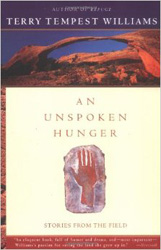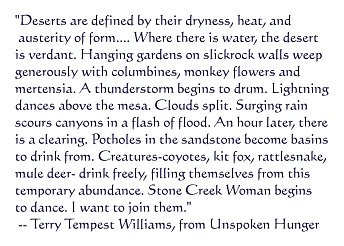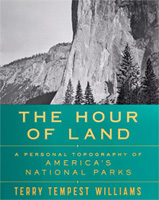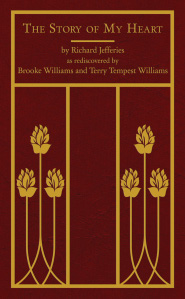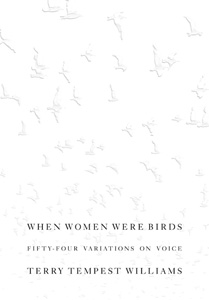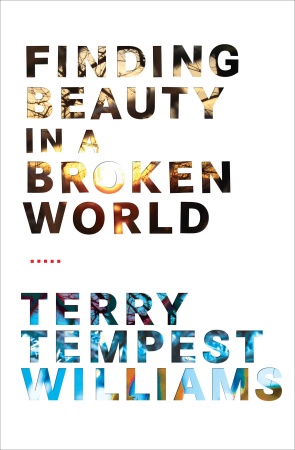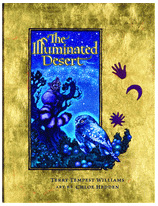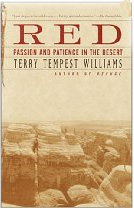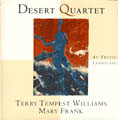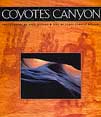| |||||
ABOUT THIS BOOK Williams weaves her observations in the naturalist field and her personal experience--as a woman, a Westerner, and a Mormon--into a resonant manifesto on behalf of the landscapes she loves, making clear as well that, through our disregard of this world, we have lost an essential connection to our deepest selves."These are rich meditations [with] strength and power.... From an examination of women's earliest mythic connections to the earth to the accounts of recent protests against nuclear testing, the idea of women as intermediary between earth and human conduct is interwoven throughout.... This is all good stuff, the kind of continuous exploration and adventure that makes a life into a pilgrimage." --The New York Times Book Review "Terry Tempest Williams makes it clear that we lose an essential part of ourselves when we neglect the earth, but this collection of essays does not offer a soapbox delivery of tired manifestoes; rather, it uses poetic and insightful inspiration to urge the reader to become aware, assess the damage, and begin to heal broken bonds. In her essay "Yellowstone: The Erotics of Place," Williams writes, "There is no defense against an open heart and a supple body in dialogue with wildness. Internal strength is an absorption of the external landscape. We are informed by beauty, raw and sensual. Through an erotics of place our sensitivity becomes our sensibility." A native of Utah, Williams is best known for her reflections on the American West, but the first essay in this book takes us to Africa's Serengeti Plain: "Morning comes quickly near the equator. There is little delineation of dawn. On the Serengeti, it is either day or night. A peculiar lull occurs just before sunrise. The world is cool and still. Gradually, the sun climbs the ladder of clouds until the sky mirrors the nacreous hues of abalone." Through these readings you'll discover that Williams's "unspoken hunger" is for us to live lives with greater intent and accountability and in greater intimacy with the natural world." --Kathryn True
|

